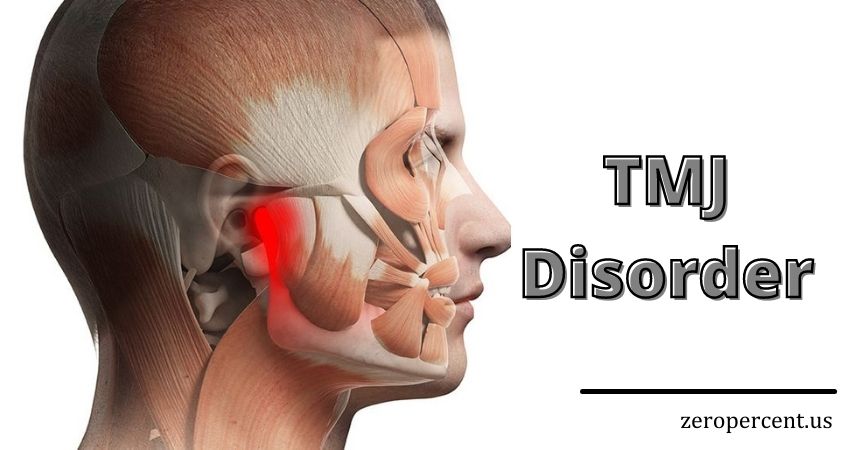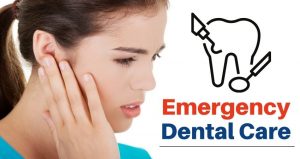Your Complete Guide For TMJ Disorder!

The jaw muscles and joints that allow us to close and open our mouths are called TMJ, or temporomandibular joints. These joints are ball and socket joints with a disc present allowing to cushion pressure as well as to allow the joint to rotate, open, and move. If there are any issues with these ligaments, muscles, discs, or bones, the result can be quite painful. This comes under the problem known as TMJ disorder. In less severe cases, it can resolve on its own, but in severe cases, medical attention with a tmj specialist may be required. If you want to know more about TMJ disorder, you have come to the right place.
Table of Contents
What are the Causes of TMJ Disorder?
The TMJ, the temporomandibular joint is an important joint that controls the sliding motions with its hinge action. The bones interacting with the joint are protected by a layer of cartilage separated by a disk that is shop absorbing. All these combine to make a smooth movement. Nevertheless, there can be some reasons that make TMJ disorder more likely to occur. Some of the most common reasons and causes of TMJ disorder are:
1. Damage to joint’s cartilage due to arthritis
2. Movement of the disk out of its actual alignment or disk erosion
3. Damage caused to the joint because of impact or a blow.
Some Risk Factors for TMJ Disorder
Some factors are considered as being responsible for increasing the risk of developing TMJ disorder. Some of these factors are:
- Injury to the jaw
- Different arthritis kinds like osteoarthritis and rheumatoid
- Clenching of the teeth or long-term chronic grinding
- Some diseases of the connective tissue that may have effects on the temporomandibular joint.
Signs and Symptoms of TMJ Disorder
If left untreated, TMJ can worsen progressively and cause facial swelling, headaches, tooth grinding, nerve inflammation, so much as joint dislocation as well. While TMJ is often associated with pain in the jaw, some common symptoms of this disorder include:
- A click or pop in the jaw
- Ringing, pain in the ear, or cracking sounds
- Blurred vision
- Persistent headaches
- Jaw or neck stiffness
- Tingling or numbing in cheeks or chin, facial pain
- Tongue pain or discomfort
- Shoulder pain
- Jaw dislocation or lockjaw
- Vertigo, or dizziness when standing up.
Diagnosis of TMJ Disorder
TMJ disorder can often be difficult to diagnose because there is not any proper standard test that can be used to diagnose these disorders. The doctor will be referring you to some dentist or an ENT (ear, nose, throat) specialist for your diagnosis. The doctor will examine the jaw for any sort of tenderness or swelling for examining TMJ symptoms. The doctor should also be asking for some imaging tests as well. These imaging tests can be different. But normally, some of these imaging tests include:
1. Jaw X-rays
2. Jaw CT scan for seeing joint tissues and bones.
3. Jaw MRI to examine any problems with the jaw structure.
When is a Doctor Needed?
While sometimes the problem may resolve on its own, other times there may be a need to see a doctor. You should get medical attention if there is persistent tenderness or jaw pain, or if you are unable to chew or open your mouth. If these symptoms arise, it’s best to consult a doctor. Nevertheless, if you do not experience movement limitation or pain associated with the clicking of the jaw, you would not need any sort of treatment for this disorder.
Treatment Options for TMJ Disorder
In most cases, the treatment of TMJ disorder is done using simple home-based self-care practice. Some ways to ease TMJ symptoms include eating soft foods, using ice for reducing swelling, reducing stress, reducing movements of the jaw, avoiding tough foods, and chewing gum, and practicing jaw-stretching exercises to improve the movement of the jaw.
While these simple remedies work in some cases, you may need a doctor’s advice if the symptoms do not improve with the above-mentioned treatments. Based on the severity of your symptoms. The doctors may recommend and prescribe some of the following treatments:
1. Medications to relieve pain like ibuprofen.
2. Muscle relaxing medications to relieve jaw muscles like Soma, Valium, or Flexeril
3. Medications for swelling relief (corticosteroid drugs)
4. Bite guards or stabilization splints for the prevention of teeth grinding.
5. Botox to reduce jaw nerve and muscle tension.
6. Using cognitive behavioral therapy for reducing stress.
In very rare conditions, where there seems to be no other way out, the doctor can recommend using surgery or other such procedures that may treat your condition. This may include procedures like surgery for joint replacement, corrective dental treatment for improving teeth alignment and biting, or arthrocentesis to remove debris and fluid from the joints.
Is it Possible to Prevent TMJ Disorder?
TMJ disorder cannot exactly be prevented from developing, but you may be successful in managing the symptoms by reducing and managing your stress levels. A helpful tip will be to try to stop teeth grinding as this can be a mouthguard in the night can reduce your teeth grinding problem. Teeth grinding can also be reduced by reduction in anxiety and stress through exercise, counseling, and diet. Here are some simple tips to manage stress and the symptoms:
1. Do not chew gum.
2. Eat only soft foods.
3. Manage your stress with diet, counseling, and exercise.
4. Correct any jaw issues such as misalignment.
5. Make use of protective equipment while exercising and playing sports.
Most cases of TMJ require making changes in lifestyle habits along with medications for reducing discomfort and pain. While in most cases, it can be treated with simple remedies, aggressive treatments may rarely be required. If you face a TMJ disorder, the best option is to talk to your doctor about the options that you have, and what you both decide is in your best interest.












